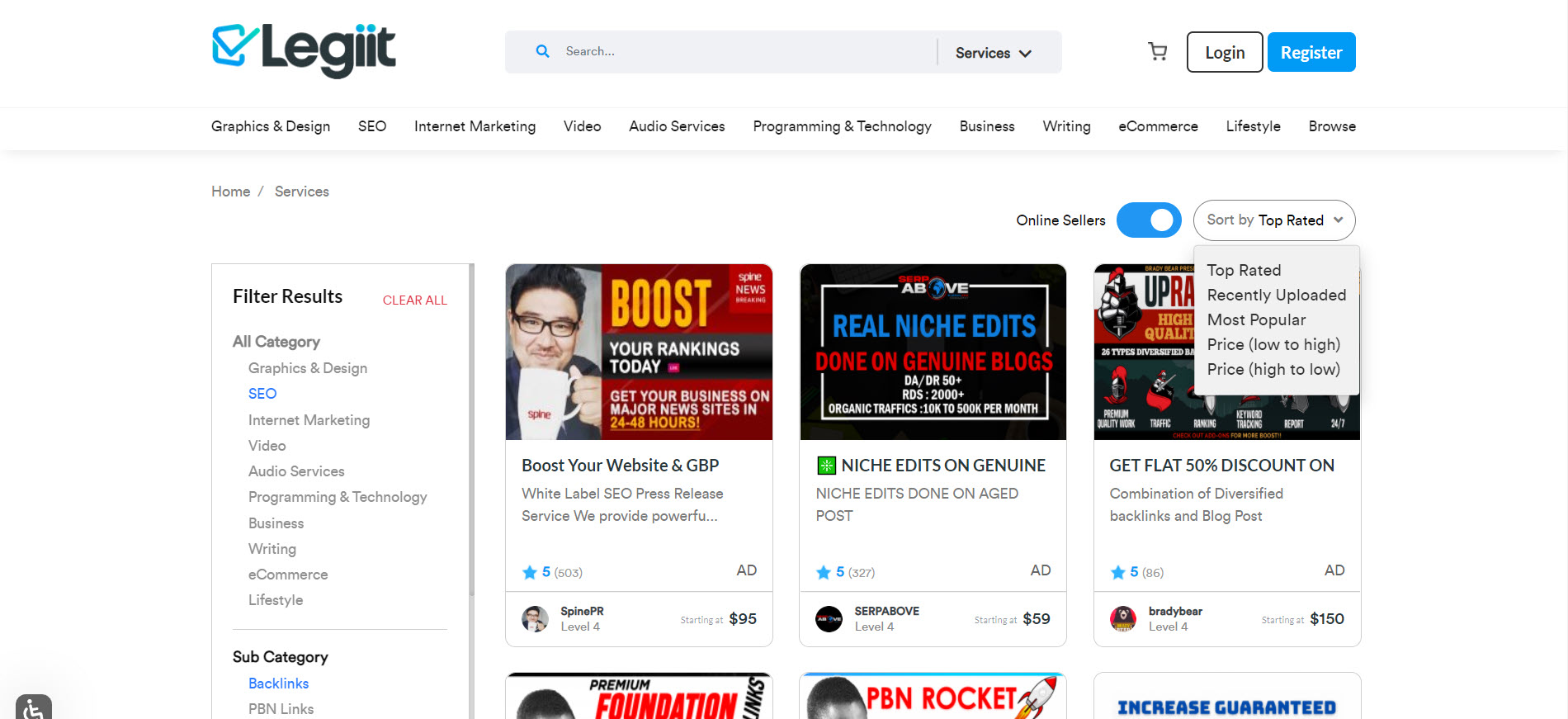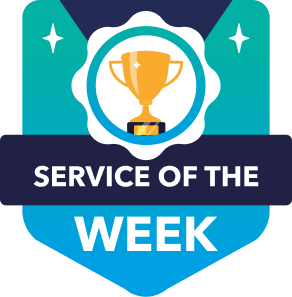Backlinks are arguably the most vital ranking factor in search engine optimization (SEO).
The more high-quality backlinks your site has, the higher it will rank on search engines for your target keywords. As a result, the more highly qualified traffic your site will attract. At the same time, generating these types of links at scale is a time-consuming process.
You could launch a well-thought-out link-building strategy and you're lucky if you can acquire a handful of these links.
Not to mention, you have to spend money on the tools and workforce required to roll out your initiative.
So, if you're spending money on developing and launching link-building campaigns, why not just buy them directly from websites? This post tackles link buying in-depth. We'll look at how link buying works, its legalities, how much it costs, and more. In the end, you should be able to decide for yourself whether or not buying links is for you.
What is Link Buying and How Does It Work?
In a nutshell, link building refers to the process of asking publishers and site owners to place a link to your site . In exchange, you pay the publisher for the backlink.
You can also buy links from link building services or vendors .
They have connections with site owners who can publish your link on the site on the vendor's behalf. The benefit of using vendors for link buying is you don't have to find which sites to purchase links from. The vendor will provide you with the list—all you must do is pick and choose.
Getting link building services costs more than finding which sites to buy links from. But you're paying vendors for the time and effort you'll save as they'll take care of securing the link for you on your chosen site faster.
Different Types of Links People Can Buy
There are various types of links people can buy for their websites to increase their search engine rankings. Below are the most common paid links available in the market:Niche Edits

Also known as link insertions, publishers can place a link to your site
from one of their existing posts
in exchange for payment.
The beauty of niche edits is you get a link from a page on the site that's already attracting organic traffic. So, you can generate referral traffic from the clicks your link receives from the post, aside from siphoning the site's authority onto your site (more on this later).
For the same reasons, niche edits can be the most expensive of all paid links.
Guest Posts
Some site owners accept payments for links in the form of a guest post. In this case, you must write a post with a link to your site (along with your payment) and submit it to the publisher for their review.

You can also hire link building outreach services to secure these links. They will email different publications related to your niche asking them to write guest posts on their sites with a link to your website. To be clear, you're paying services for the task of doing the process for you. While you can do this on your own, paying someone with outreach experience is the better choice. Once publishers approve your guest posts, they will schedule them for publishing or post on their blog immediately. If not, they will return your piece and payment because your content or link didn't meet the site's editorial standards.
Private Blog Networks
Private blog networks (PBNs) are a collection of websites with the purpose of ranking money sites on top of search results for their keywords.
It does this by linking to money pages across different blogs in the same network. The trickiest part of linking using PBNs is to avoid getting detected by Google in using them to rank your website. In this case, it's better to use private blog networks to link to your tier 1 sites that are linking to your money site.

Image Source This way, your money sites won't receive the full brunt of
Google's penalty. It gives you leeway to overcome any drop in search rankings caused by PBN links.
Despite this potential drawback, PBN links are very popular paid links due to their effectiveness. The reason is that the blogs are made from dropped domains .
These are existing domains that were not renewed by their original owners.
Most of these dropped domains have existing backlinks pointing to them, giving them more authority compared to newly purchased domains . As a result, backlinks from these sites have more link equity, which gives your site a much greater boost in search results.
How Much is a Backlink?
If you're ready to buy link building services packages , you must know how much it costs as well.
There are lots of resources out there that put a price tag on a good backlink. And all points to you breaking the bank if you want to buy links in droves. Ahrefs reported back in 2018 that the average cost of a backlink across 54 sites they reached out to is $361.44.

Image Source A more recent study by Siege Media led them to a conclusion that a low-end backlink cost approximately $500 while a backlink of higher quality cost north than $1,000

Image Source Finally, link building pricing according to LinkBuildr.io ranges from $100 to $20,000 per month.

Image Source As you can see, link buying isn't cheap! Regarding Ahrefs and Siege Media's studies, we're looking here at just one backlink. And a single backlink does not make a link profile. Expect to shell out an average of $1,000 a month if you want to see positive results in your link building campaign.
What Determines the Price of a Backlink?
The question now begs to be asked: why are backlinks cost damn high? There are lots of factors that affect a backlink's worth.
Basically, the higher link prospects or websites score for the metrics below, the more expensive the link becomes. And the only way for them to achieve high scores for these factors is if they are able to develop authority over time . Knowing what these factors are enables you to understand whether or not you're paying for more than what a link is worth. This helps you vet out which among the vendors or site owners are overcharging you for a backlink. That said, below are the factors in question:
PageRank
Back in the day, Google allows users to measure a website's authority by looking at its PageRank (PR). The higher the site's PR is on a scale of 1-10 (10 being the highest), the more authoritative a site is.

Google determines a site's PageRank based on the number of high-quality dofollow links it has. The more links it has from authoritative websites, the higher its PR becomes. Sites with high PageRank scores are ideal link partners. The backlinks you acquired from high-PR sites allow your site to siphon its PR. That means you're increasing your site's value by securing these backlink types. To help you understand the value that links from high-PR sites bring to your website, think of backlinks as recommendations . You can get glowing recommendations from thousands of your peers, but a glowing review from a celebrity or influencer trumps them all. The same principle is at work in link building. A single link from a site with a household name is worth more than a thousand backlinks from middling websites. While Google still uses PageRank internally, it has long been deprecated for public viewing. Nowadays, you can refer to metrics like Moz's Domain Authority (DR) or Ahrefs' Domain Rating (DR), both of which measures websites the same way as Google did with PR.

Using either metric, you can determine which sites you should shell out cash for in your link buying process.
Organic Traffic
How much traffic a website is getting from search engines is also indicative of its authority. A website attracting lots of organic traffic means it has a very good SEO campaign in place. It probably is churning out high-quality content and attracting natural links in the process. Or it's observing the best industry best practices for optimizing websites. As a result, the site is generating traffic by ranking on top of search rankings for its target keywords. Also, buying links from sites that drive organic search traffic allows your link to be seen by actual people.
This way, you only have the chances of people clicking on your site as well, which counts as referral traffic. To find out if a website is attracting organic traffic, type its URL in Ahrefs' Site Explorer and click on the Organic traffic tab on the results page.

In relation to Domain Rating, it's possible for a website with high DR to have little to no traffic at all.

This means that the site is either a recently purchased expired domain that has carry-over backlinks from its previous version. Normally, websites with lots of authority also attract lots of traffic.
So, links from websites with high DR and low traffic are dead giveaways that you're engaging in link schemes. That's why it's important to find and buy links from sites with high DR and organic traffic. It keeps Google from suspecting your site from foul play and allows you to establish a more natural-looking backlink profile.
Your Content
Ideally, you want to increase the search rankings of your landing pages by buying links that link to them. But most sites prefer linking to informative posts instead of landing pages because it adds value to their content. Links to sales pages that don't provide additional information about the topic could be perceived as spammy by people and search engines.
As a result, it could devalue the page linking to your site. This isn't to say that it's impossible to get links from websites to your landing pages. But vendors or link building services may increase the backlink price for the reason stated above. In this case, it's best to create informational posts that link to your landing page and buy links pointing to these posts. This way, the value your content provides makes it easier for publishers to link to.
Industry
The price of the links depends on the industry you're in. For instance, site owners usually don't like linking to gambling and payday loans niches.
Not because they aren't profitable industries, but they hold poor reputations due to the aggressive and unnatural SEO practices rampant in both.
Because of this, they have to pay the price (literally) to get links pointing to their sites. This contrasts with more restrained niches like gaming and wedding, where bloggers and site owners charge less for outbound links.
You can lump in marketing blogs as easier niches from where to get links. Bloggers in this niche prioritize building relationships, so they're more willing to link to others (whether free or at a nominal price). Also, it's best to link from within your niche. The links you'll get from a finance website to your CBD website won't be as powerful as a link from the same industry. Since the sites linking to the other in the same niche has an overlap in topic coverage
Best Tips on How to Buy Backlinks for SEO?
At this point, you should be convinced that buying backlinks is an essential part of the link building process. You can earn links naturally and generate lots of traffic later, but you can buy backlinks and get lots of website traffic now . But to engage in link buying correctly and without drawing the ire from Google and other search engines, keep a tab of the following tips in mind:Research and Filter Your Target Sites
If you plan on buying high-quality backlinks yourself, you must learn how to gather and filter target sites from where you want to get links. A quick Google search for your topic and including the word "blogs" or "sites" should help you get the ball rolling.

You can then export the list of sites using the SEO Minion Chrome extension or similar to analyze which sites you should target first.

If you have the budget, using an SEO tool like Ahrefs will make the process much easier for you. Its Keyword Explorer feature allows you to determine the top websites in an industry based on the number of related keywords they're ranking for it.

From here, you can export the list and upload them to the tool's Batch Analysis feature. It will break down each site according to different SEO metrics, particularly DR and organic traffic.

To be clear, tools aren't and shouldn't be the be-all-end-all of your link building research. But both metrics alone are good enough to help you filter which among the prospects you must prioritize first.
Develop Ongoing Link Buying Campaign
When buying links, you can't expect to run an initial campaign and expect immediate and impactful results.
Since it's SEO we're talking about, everything is an incremental process. In this case, you need to buy a certain number of links this month, and then another batch next month, and so on. You should then be able to see an increase in traffic months from now when Google finally acknowledges the links you've built in the past.
That means you should also allot a budget for the upcoming campaigns. Initially, you want to reach out to site owners and negotiate prices to keep costs low. But once your site gains traction, you can purchase tools and outsource the SEO tasks to other service providers. This brings us to the next point.
Choose the Right Link Building Service
Buying links isn't simple as finding people who will secure the links on your behalf and being done with it.
Just like backlinks, not all link building services are the same. Some provide a better list of websites and deliver the job faster and more efficiently than others. But the line that separates both service providers can be blurry at times. Since you want the best for your website, you need to discern which link building services you'll choose from will deliver the goods.
If you know someone or an agency offering link building services, look for client reviews on their website or review sites like BBB or TrustPilot.
You can even listen to any mentions these brands have on social media to get information on whether you can trust your site with them or not.
But if you want a more straightforward way to hire people who are selling links to help shore up your link building strategies, you can sign up for a Legiit account and easily search for link vendors from our list. From here, you can filter the vendors to show the Top Rated or those who received the highest star rating from the most number of customers.

Ideally, you only want to buy from vendors with a 5.0-star rating. Click on each to read their sales pitches, check out customer testimonials, and others that will influence your decision.
The good thing with Legiit is that everything is fulfilled from within the platform. All you must do is place your order and wait for the vendor to fulfill your request. If there are problems with your orders, you can resolve the issue with the vendor, and they'll be more than happy to work towards making things better for you.
Conclusion
Walking the tightrope between great and spammy link building is necessary if you want your site to succeed. While the risk of getting your site penalized by Google is high, the reward of ranking on top of SERPs for your keywords is just lucrative, if not more . This reason is why you must get link buying right the first time.
Without proper guidance and knowing the correct process, you could be getting your site banned from search results for good. Hopefully, this post helped you understand what's at stake when buying backlinks. Your site could suffer as a result of purchasing spammy links. But if you followed this guide to a tee, you should worry more about scaling your online business as you continue buying high-quality and natural-looking backlinks.













 Download
Download